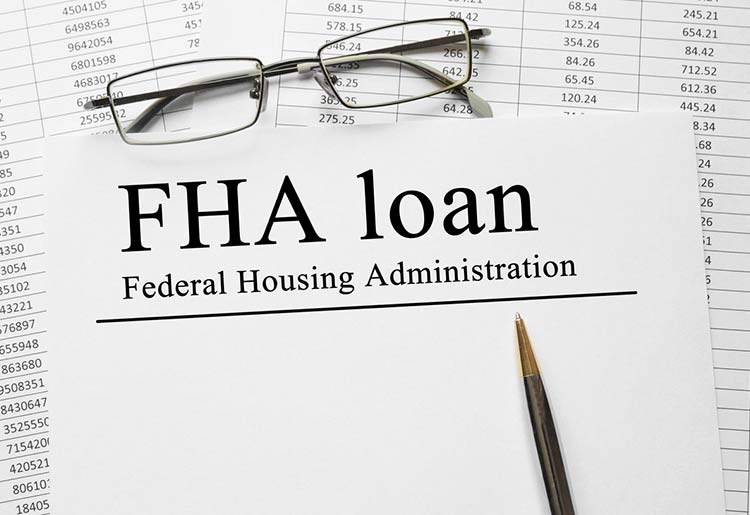
There are some costs though, and different rates and terms with different lenders, so compare these lenders to get the FHA mortgage that works for you.
The Pros and Cons of a 15-Year Fixed Rate Mortgage
| Pros | Cons |
|---|---|
| Own your home faster | Higher monthly payments |
| Get lower interest rates | You may qualify for less expensive properties only |
| Save money | Lose out on possible interest reduction due to fixed rate |
What Kind of Credit Do You Need for an FHA Loan?
Borrowers with a credit score of at least 580 can secure an FHA insured loan with just a 3.5% down payment, while borrowers with a lower credit score of 500-579 will be asked to pay 10% of the value of the loan as a down payment. Under the terms of an FHA loan, borrowers are also required to pay two types of private mortgage insurance (PMI): an upfront payment of 1.75% of the value of the loan, plus up to 0.85% per annum.
What Do You Need to Know About the FHA Loan Approval Process?
The process of applying for an FHA loan is similar to applying for a traditional loan, except it must be done with an FHA-approved lender, and you will need to show you meet the minimum credit score and other requirements specific to an FHA insured loan. See here for a complete list of guidelines.
FHA Loan Limits
You can take out FHA loans only up to certain limits, determined by median local home values in your county. Most locations fall under the standard FHA limits, but there are places that are considered high cost, and have higher limits. There are even places in several very high cost areas, with a special exception FHA loan limit.
Standard Limits:
| Home Type | Standard FHA Loan Limits |
|---|---|
| 1-unit property | $421,100 |
| 2-unit property | $543,000 |
| 3-unit property | $656,350 |
| 4-unit property | $815,650 |
High Cost Limits:
| Home Type | High-Cost FHA Loan Limits |
|---|---|
| 1-unit property | $636,150 |
| 2-unit property | $814,500 |
| 3-unit property | $984, 525 |
| 4-unit property | $1,223,475 |
Special Exception Limits:
| Home Type | Special Exception FHA Loan Limits |
|---|---|
| 1-unit property | $721,050 |
| 2-unit property | $923,050 |
| 3-unit property | $1,115,800 |
| 4-unit property | $1,386,650 |
How to Apply for FHA Loans
In order to qualify for an FHA loan, you’ll need to show you meet all the prerequisites set by the Federal Housing Administration. Your lender will ask for the following:
- Proof of verifiable income and proof that you’ve been in consistent employment for at least 2 years
- Evidence that your monthly mortgage payments won’t exceed 30% of your borrower’s monthly income
- Your agreement to pay Private Mortgage Insurance, although you can apply to stop paying PMI once you pay back 20% of the loan
- If asked, you’ll need to prove you haven’t filed for bankruptcy in the past 1-2 years and haven’t had a foreclosure in the past 3 years
What does FHA Pre-Approval Mean?
A pre-approval is a written, conditional commitment from a lender for a specific loan amount and is usually valid for 60 to 90 days. Where FHA loans are concerned, your lender will check that you meet all the usual requirements for a loan as well as the minimum credit requirements. Pre-approval is something you apply for before finding a home or if you’re in the process of negotiating with a seller. In a competitive housing market, pre-approval can give a buyer a big advantage over rival bidders. In fact, some sellers prefer to see a written commitment from a lender as it reassures them that the house sale won’t fall through at a later stage.
How Do You Get Pre-Approved for an FHA Loan?
Just as it would if you were applying for a conventional loan, your lender will ask you for:
- Personal information, such as driver’s license, state ID card, or social security number
- Proof of income, in the form of pay stubs and W2 forms
- Bank and investment statements to show you can pay the 3.5% or 10% down payment
- Other financial information testifying to your ability to make payments, such as bills and reports on additional income sources
When assessing your application for pre-approval, your lender will also pull a hard credit inquiry in order to check whether you meet the minimum credit requirements (of 520 for a 10% down payment or 600 for a 3.5% down payment). A hard inquiry can affect your score for up to 2 years. However, the credit bureaus typically consider all inquiries made within a 45-day period to be a single inquiry. Therefore, if you’re shopping around for FHA loans or you’re unsure whether you’ll be approved, it’s worth applying to all your preferred lenders within a short period of time so as not to cause unnecessary damage to your credit score.
Can You Be Denied a Loan After Pre-Approval?
Pre-approval is a conditional commitment from the lender to provide you a loan to a certain amount, but the lender is not legally obligated to provide the loan. However, if you haven’t yet found a home or if you’re having trouble getting a seller to agree to sell you a home, then it’s worth going through the pre-approval process as this gives you an advantage over buyers who haven’t been pre-approved.
Because of the unique specifications, it’s worth seeking out a top FHA lender that has experience with these loans.

